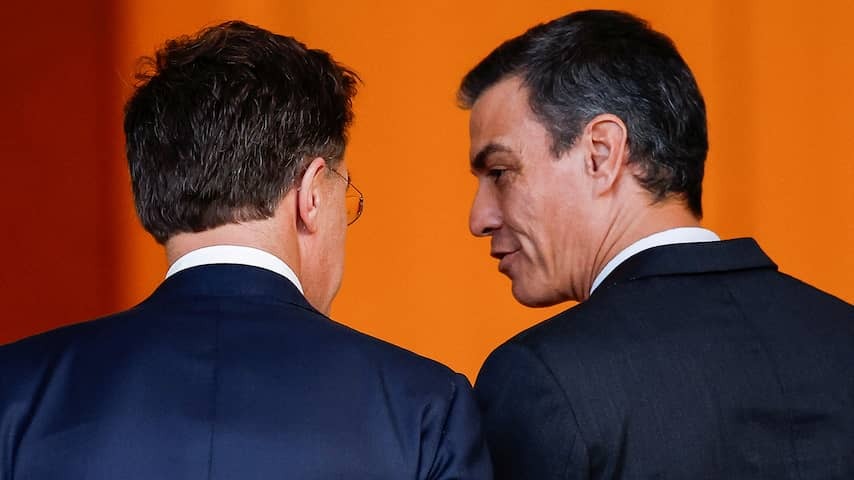
Spain does not have to commit to the proposed new NATO standard of 5 percent. NATO chief Mark Rutte pulled off a diplomatic trick on Sunday by adjusting the draft text of the final declaration. As a result, Spain escapes the dance.
In the run-up to the NATO summit in The Hague on Tuesday and Wednesday, tensions within the alliance ran high. With the return of US President Donald Trump, it became clear that the NATO standard (the percentage of gross domestic product that member states must spend on defense) had to be increased.
Trump aimed high: the NATO standard had to be increased from 2 to 5 percent. This seemingly unattainable demand was met by Rutte with a compromise: a NATO standard of 5 percent, with 1.5 percent allowed to be spent on supporting defense matters such as infrastructure and security. A higher NATO standard would be much more bearable if money could also be invested in a new highway, the thinking goes.
However, Spain continued to resist the increased NATO standard tooth and nail, even in the adjusted version. Prime Minister Pedro Sánchez sent a letter to Rutte last week in which he reiterated that Spain is not waiting for higher defense spending.
On Sunday, this last obstacle was also removed. Rutte then made a final proposal. In the draft text of the final declaration, he replaced the text “We pledge” with the text “Allies (read: NATO countries) pledge”. As a result, there is now a final declaration that all 32 member states can agree to.
Spain finds 5 percent norm ‘unnecessary and disproportionate’
Sánchez said in a television address on Sunday evening that Spain does not have to commit to the increased NATO standard of 5 percent. He said he respected the wish of fellow member states for such an increase, but called the new norm “unnecessary and disproportionate” for Spain.
Madrid will therefore spend 2.1 percent of its GDP on defense. According to Sánchez, that is sufficient to meet NATO requirements regarding equipment and personnel.
The final declaration will be delivered by the leaders of the member states at the end of the NATO summit in The Hague on Wednesday. It is expected to be the most important achievement of the long-awaited summit in the royal city.